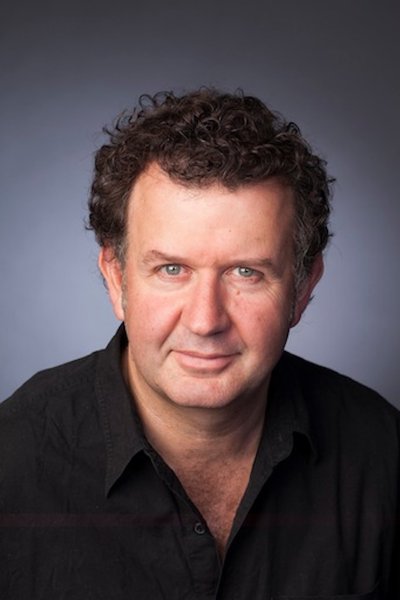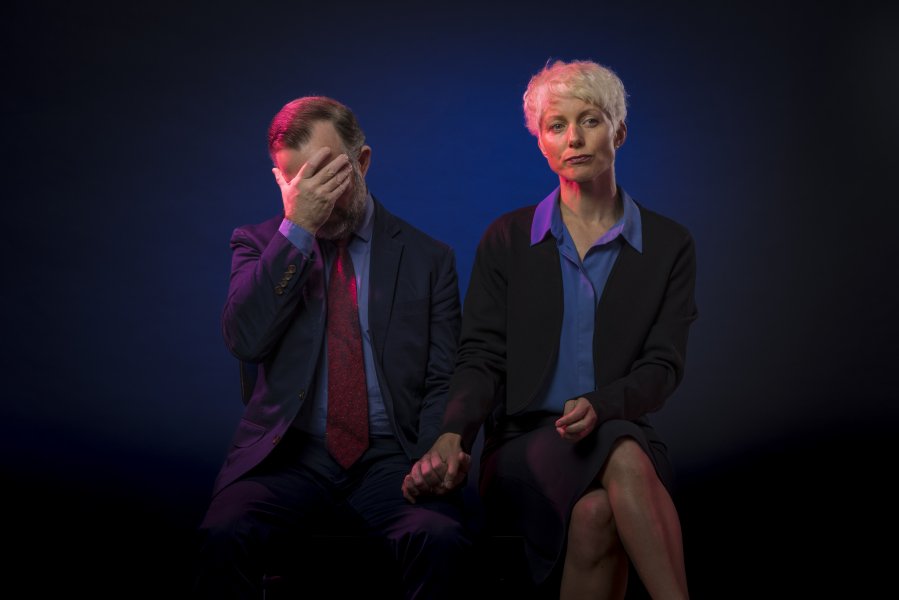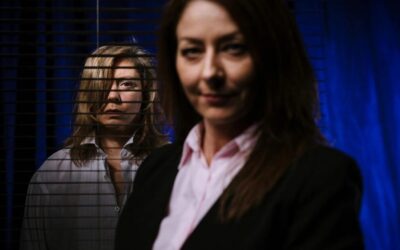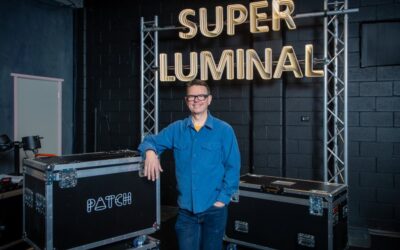True to its name, The Platypus, written and directed by Francis Greenslade, is a platypus of a show, made up of strange and ill-fitting parts including one part audience, two parts actor, and multiple genres. Mamet, Shakespeare, Oscar Wilde, Restoration Comedy, and a Sondheim-inspired song – just to name a few – are the seemingly incongruous influences found in the piece. For Greenslade, a way to unpack and explore the masks we wear in public and private.
“When we sit around at home in our pyjamas eating peanut butter from the jar, or indulging in whatever little foible we might have, we are as normal and as natural as we will ever be. It’s just us. And our partner.
And then, when we go outside, we might meet, say, a co-worker we don’t particularly like, or an old school friend we’re very fond of, or just someone in a queue who we exchange pleasantries with. And we are different with each of them. We put on a different persona. Or a different part of us comes out.
It seemed to me that the best way to represent this theatrically was to write the scene in a different theatrical genre. So, when one of the couple meets someone outside the house, it’s a scene in Shakespearian verse, or it’s a faux Oscar Wilde scene, or it’s a musical theatre song.
I had to find genres that fitted what the scene was, but also ones that the audience would recognise. And yes – I moved things around a bit and changed this scene to that. It was a bit like doing a jigsaw. Making sure the narrative moved along in the right order while ensuring the best genre was being used in the best place.”
On the surface, a simple story about Richard and Jessica and the messy ending of their relationship and whether they can put the pieces back together but underneath lies a deeper question about relationships. Says Greenslade, “Is it possible to mend something that’s fractured? And when a couple gets into destructive habits of resentment and intolerance, can we pull that back? Can we reset the relationship to those initial factory settings?”
Interestingly, the idea for the play came about after Greenslade had pitched a completely different show to a major theatre company – a French absurdist play that he’d translated about a family that tries to escape from a threatening noise – and was then told after the pitch that, in theatre, the nuclear family isn’t very relevant anymore.
“I was a bit stunned, ” says Greenslade who had young kids at the time and was regularly doing school drop off and pick up at the local primary school and the nuclear family was everywhere. “There were heterosexual nuclear families, same sex nuclear families, bits of nuclear families that had split up and bits of nuclear families that were trying to blend together to make a new nuclear family. And some of them were a bit toxic, and a lot were happy. And I know there are other ways of living in society but to say that the nuclear family is irrelevant, just wasn’t my experience. Most people who get together to have a child do so intending to bring it up in a stable and loving environment. And isn’t that a nuclear family?
So, I thought, there’s a gap between what this theatre maker thinks is relevant to people and what actually is. And I wrote The Platypus in response to that. I wanted to write something that was absolutely and directly relevant. About the lives of the people sitting in the audience.
But I didn’t want to make it just a naturalistic representation of a couple. And that’s where the genres come in. To make it interesting and surprising and shocking. Without, I hope, sacrificing the truth of the situation.”
Greenslade says he came up with the first half of the play very quickly and then it smouldered away in his head for some years. He’d take it out and tinker with it and get depressed and put it away. Then when he was doing Shakespeare in Love with the MTC they toured to Canberra and the rest, as they say, is history.
” We had a show on the Saturday night, and then nothing until the Tuesday night. It was freezing cold, I didn’t know anyone, I was trying to save money, and so I just sat in my hotel room for three days and finished it off.
Because it was so long a process I did have to change some things. For example, one scene was a conversation between the central couple while they were watching free to air TV. I’ve now had to update that to Netflix as viewing habits have completely changed.
I think also, I was unconsciously writing a part for me. The central male character is about the age I was when I started writing the damn thing. I’m too old to do it now, so I’ve cast the excellent John Leary in the part. He and the equally excellent Rebecca Bower basically form the cast.”

Greenslade, a self describes uninventive storyteller, is in awe of those who are – those writers who can just spin a story out of their own imaginations. He has, instead, very much relied on things he has experienced or witnessed as inspiration for ideas and writing.
“I should add that I’ve been happily married for 25 years and in that time, we have never had a single argument or a second of disharmony. It’s been 25 years of continual bliss. He said. But of course, even the happiest marriages have moments of discord.”
Marking over 30 years in the entertainment industry, Greenslade just wouldn’t be happy doing anything else.
“I’m stuck with it. It’s a great job when you get to work, because in essence it’s about playing. You get to muck about and play games. You become a child again.”
No stranger to both the small screen and theatres across Australia, Greenslade thinks there are a few things that are important when it comes to longevity in what some consider to be a fickle industry”
- Being nice.
- Doing the job well enough that they want you back.
- Refusing to give up and do something else.
Probably in reverse order of importance.
As for the play, Greenslade would like to encourage discussion about how a play or a book influence lives directly. “If you watch a play about a couple in crisis, does that help you with your own issues? I think, in the end, the answer is probably no, not directly. But you never know.”
Greenslade has attempted to make a universal story – couple in difficulties – as interesting as he can. “I hope it’s like a Christmas stocking, he says, “you put your hand in a pull out some Lindt chocolates, or a slinky, or some yellow socks with owls on them. I’ve tried to make it as surprising, and shocking, and funny, and black, and awful and entertaining an experience as I possibly can.”
Platypus brings together an outstanding team of cast and creatives. Running for a limited premiere season at Theatre Works in St Kilda, mark this one on your calendars – it’s not to be missed!
Says Greenslade, “It’s funnier than Hedda Gabler and truer to life than Harry Potter and the Cursed Child and much much shorter than Cloudstreet. Win win win.”
June 19 – July 6





